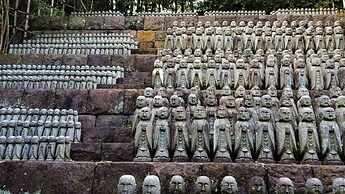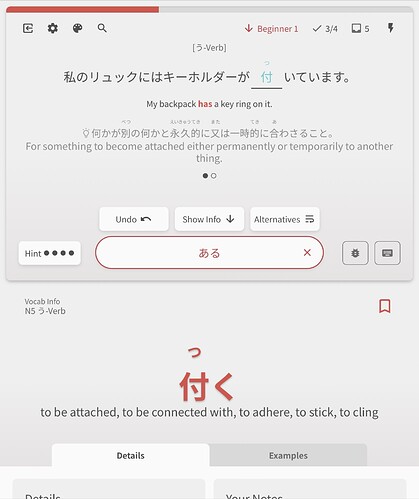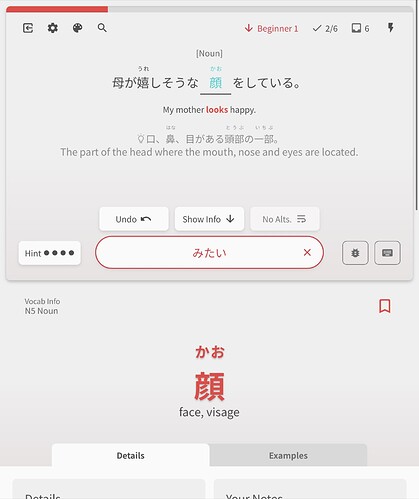There are also times where the expected answer is different than what you would expect based on definitions, due to the context. In some cases they have an extra “(hint)” after the blue hint part. Personally I think that would be helpful to have more often. Memorizing a laundry list of situational definitions is difficult, and knowing the definitions that a word will be used for in a few contexts can cause the expected answer to not come to mind.
ex. there’s a few sentences related to taking a test and asking for the verb; 受ける is the expected answer, but the definitions only list “to receive, to get” so it didn’t come to mind as a possible answer for that sentence. Obviously you pick it up over time, but you’re basically blindsided at first since the use case doesn’t match the definitions you learned. (Also, I don’t think I’ve had questions asking for 受ける in the context of “to receive, to get” either)
I would also like it if the system would first stick to sentences that use the definitions I actually learned, before moving on to questions where the word is used in a different context. That way I at least have a chance to get the word down before being expected to remember some additional definitions. 代 also stands out for having way too many listed to possibly remember.






